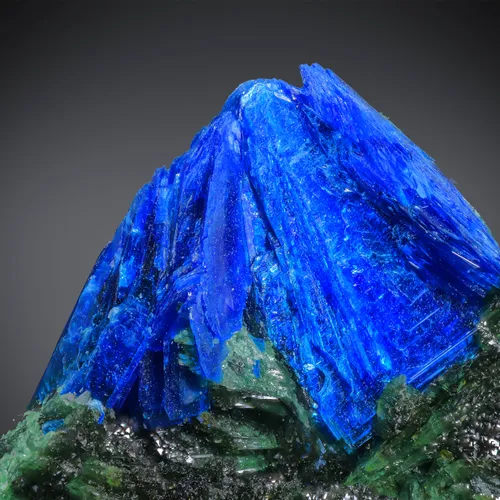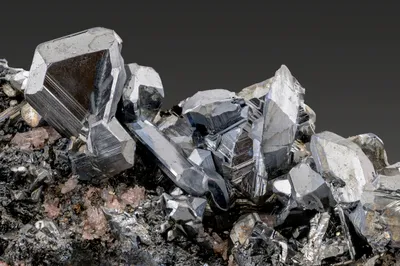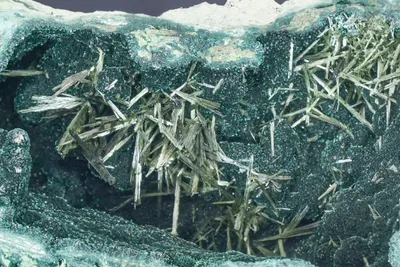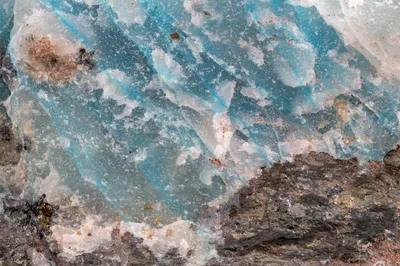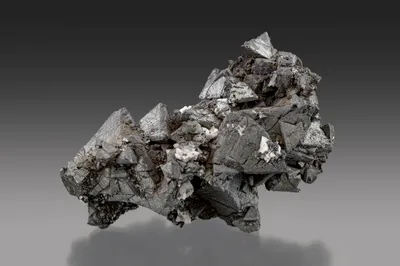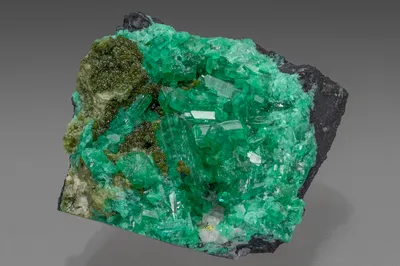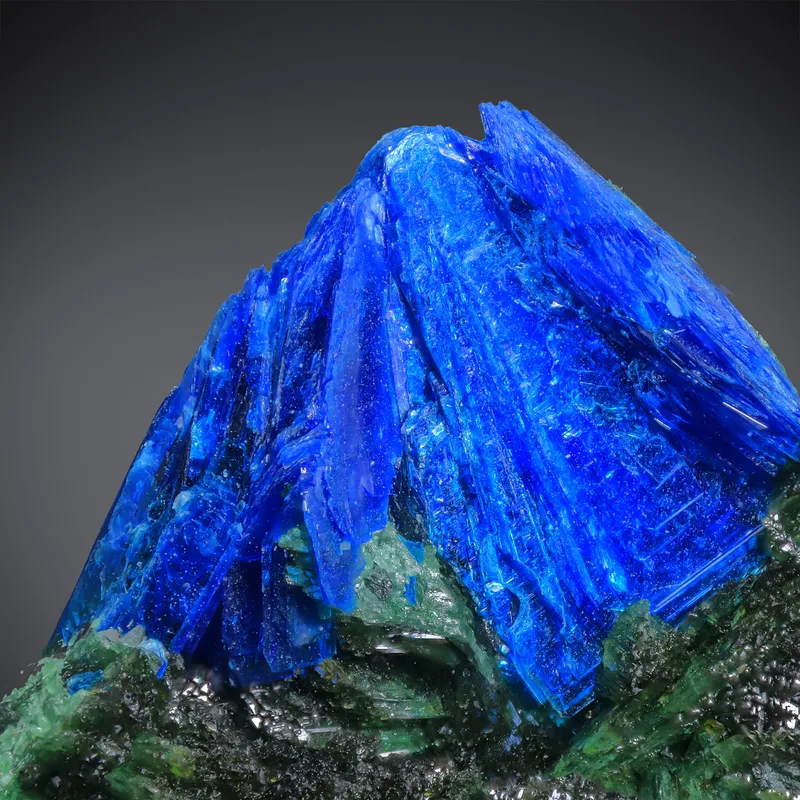
Image Credit: John Schneider
Mineral Species
Calcioandyrobertsite
Type Locality
Yes
Composition
KCaCu5(AsO4)4[As(OH)2O2] ·2H2O
Crystal System
Monoclinic
Status at Tsumeb
Confirmed (type locality)
Abundance
Extremely rare
Distribution
First and third oxidation zones
Paragenesis
Supergene
Entry Number
Species; TSNB65
Type Mineralogy
The type specimen for calcioandyrobertsite (and andyrobertsite) is believed to have been mined at Tsumeb in the early 1950s (Cooper et al. 1999), indicating a high probability that it is from the first oxidation zone. It originally belonged to Richard Baughart, a mining engineer working at Tsumeb and changed hands several times before being purchased by Bill Pinch at the 1996 Denver show, labelled as zinc-deficient keyite. Analysis demonstrated the presence of two new minerals, calcioandyrobertsite (IMA 1997-023) and andyrobertsite (IMA 1997-022). The crystal structure (of both minerals) was refined and solved by Cooper and Hawthorne (2000). Calcioandyroberstsite is a compositional variant of andyrobertsite, which was named to honour Andrew C. Roberts (b. 1950), mineralogist with the Geological Survey of Canada. Type material is conserved at the Royal Ontario Museum (catalogue numbers M47022 and M47110) and at the Smithsonian Institution (catalogue number NMNH 171487).
General Notes
The type assemblage comprises calcioandyrobertsite (with andyrobertsite) on tennantite, with zincolivenite and olivenite (Cooper et al. 1999). On the type specimen calcioandyrobertsite and andyrobertsite occur as intimate lamellar intergrowths that are crystallographically continuous; the two species are not visually distinguishable.
Microcrystalline mixtures of calcioandyrobertsite and stranskiite have been found filling fractures in tennantite-rich massive sulphide ores from the third oxidation zone.
Calcioandyrobertsite is a component of the type assemblage for davidlloydite (Hawthorne et al. 2012), for which the type specimen is believed to have originated on 44 Level, in the third oxidation zone.
Associated Minerals
andyrobertsite; chalcocite; davidlloydite; geminite; lindackerite; olivenite; stranskiite; tennantite-(Zn); zincolivenite
